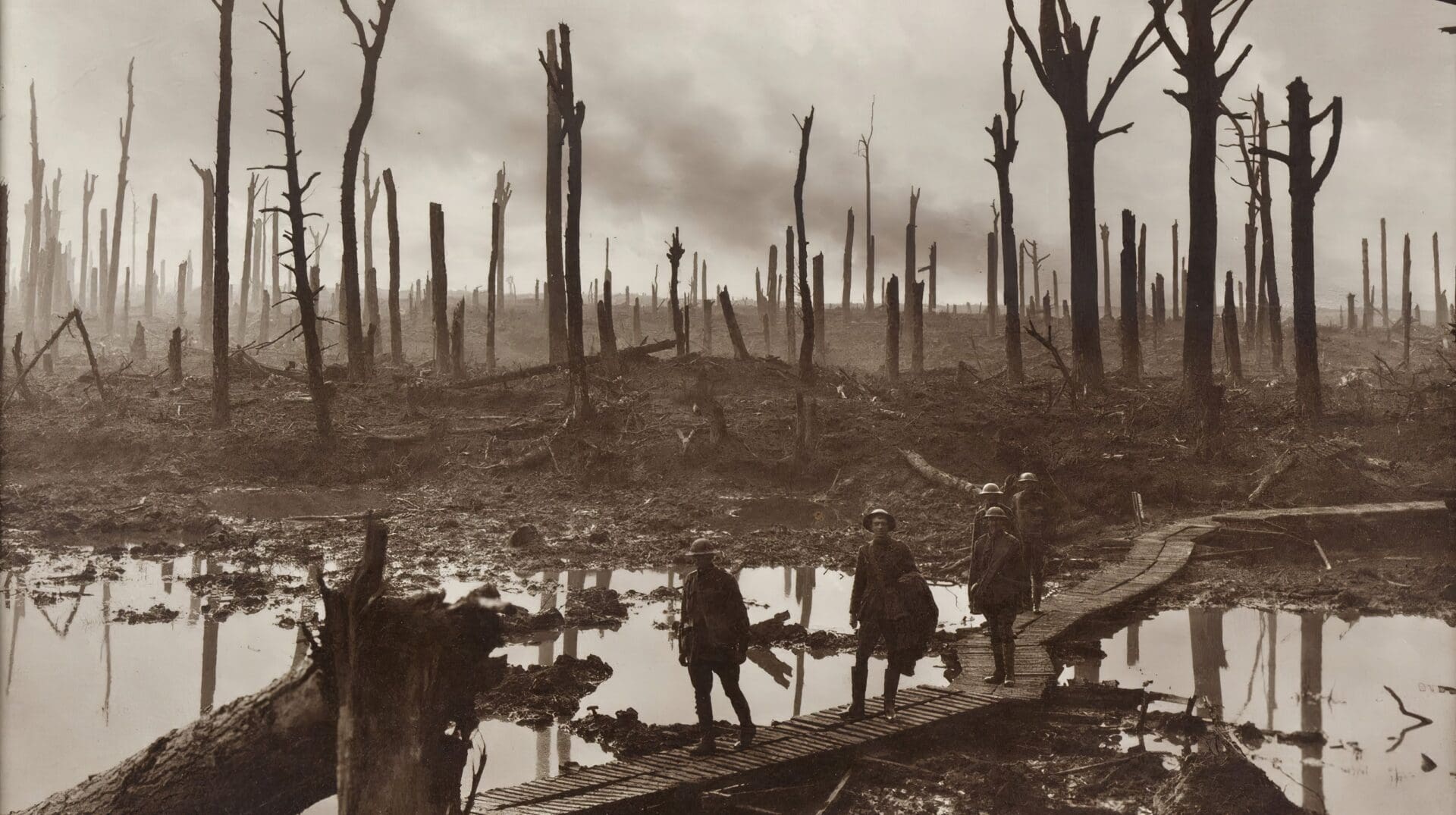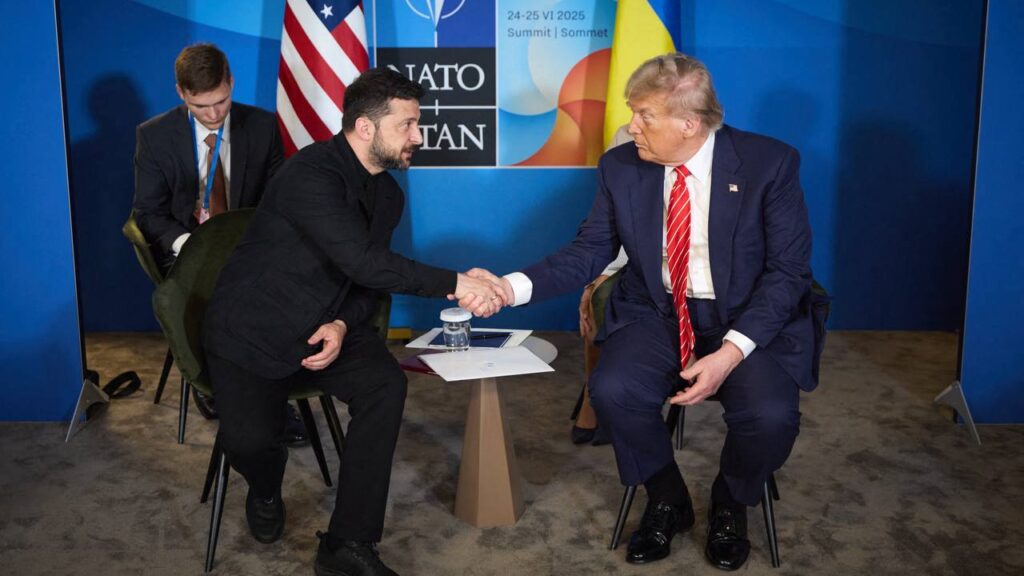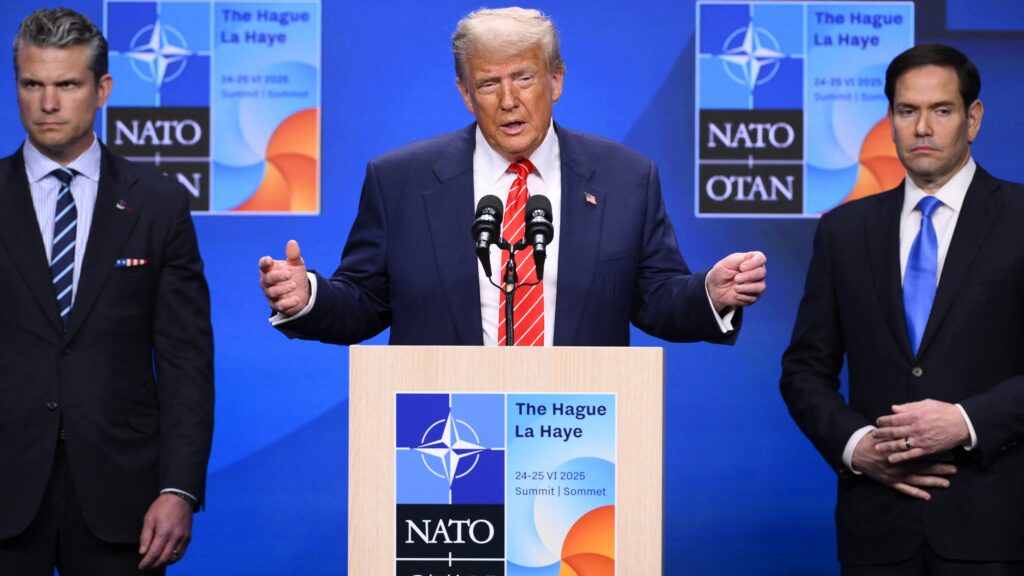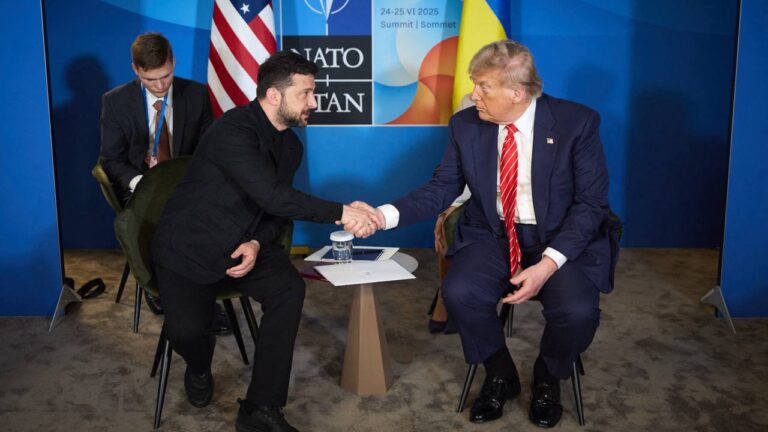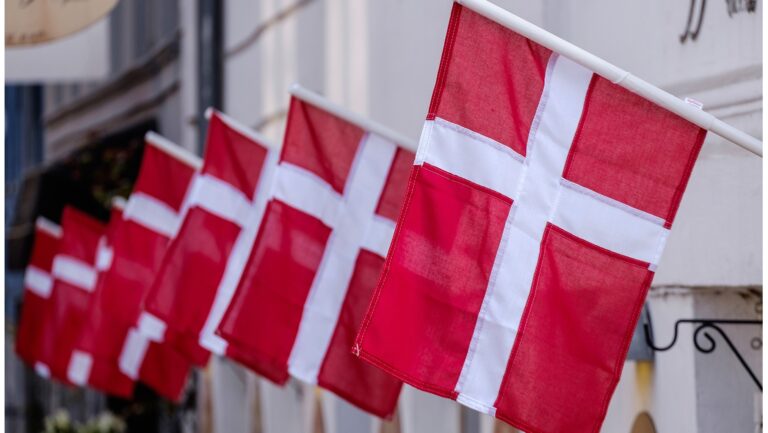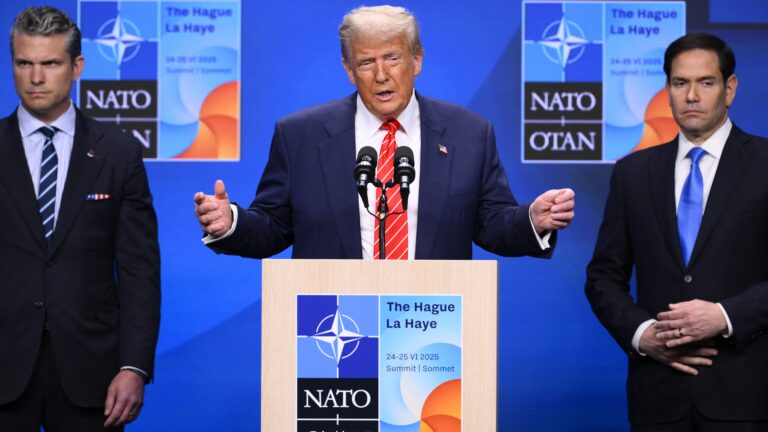In my retirement from day-to-day politics, I enjoy a spacious office on the 65th floor of a classic Sydney skyscraper, with panoramic views over the world’s finest harbour. Sometimes, my enjoyment of this vista is darkened by the thought of such peace and plenty being turned into something resembling Mariupol. If that is an improbable spectre, it is only because Australia and its allies have been prepared, when needed, to stand up for the values we cherish.
In the Great War, from a population of scarcely five million, over 400,000 Australians volunteered to fight for king and country: 330,000 served overseas, 155,000 were wounded, and 60,000 never came home. An unspeakable sacrifice that still casts a long shadow. But militarism was defeated. In the Second World War, Australia sent one army to the Middle East and another to Malaya. We sent our navy to the Mediterranean and our air force to Britain. From a then population of seven million, almost a million Australians wore uniform and 40,000 perished. But freedom survived and ultimately flourished; not just in our country but increasingly around the globe. Unlike the conflicts in Korea, Vietnam, Iraq, and Afghanistan, all of which Australia contributed to, it was the whole nation that fought these wars, as well as the professional soldiery.
But what sacrifices would the Australian nation be prepared to make now? I suspect that we will have to make some, more than we have recently had to—sacrifices in treasure, at least, if we are to avoid having to make them in blood. Because dictatorships are on the march, not just here in Europe and in the Middle East, but in East Asia too, and the only way to see off aggressive bullies is to meet them with an equal measure of strength and determination. Ignoring these challenges will not make them vanish, even though it is human nature to want to. The Ukrainians’ courage and flair, in meeting an existential threat, should reassure us that we, too, can meet perils, as yet less deadly, in ways that might prevent an even greater catastrophe.
A famous ‘Yes, Minister’ skit provides a good example of the ostrich tendency to stick our heads in the sand in the hope that problems might disappear. In stage one, said Sir Humphrey, we say nothing is going to happen. Stage two, we say something may be about to happen, but we should do nothing about it. Stage three, we say maybe we should do something about it, but there is nothing we can do. Stage four, we say maybe there was something but it is too late now.
Yet even the most testing of possibilities usually turn out better if they are faced up to steadily. Putin’s war was supposed to mean Ukraine’s inevitable defeat and dismemberment, given the disparity in size; and it was supposed to mean NATO’s inevitable discombobulation, given Europe’s energy dependence on Russia. But something remarkable happened early in January. Instead of keeping under wraps the Russian troop build-up on Ukraine’s borders, Western intelligence agencies all but announced that Russian forces were ready to assault, so much so that at one stage President Zelensky accused them of fomenting panic. The result was that people were more ready for it when it came. President Zelensky scorned the offer of a chopper ride to safety; the Ukrainian armed forces, much better prepared this time than in 2014, harried the invaders into a humiliating withdrawal from Kyiv, and the Ukrainian people showed beyond any shadow of previous doubt their almost complete unanimity in not wanting to be part of Russia.
‘In an interconnected world no one can be blasé about “other people’s fights”’
Steeled by public anger at blatant aggression, compounded by fury at obvious war crimes against civilians, most NATO countries made large arms shipments to Ukraine, imposed crippling sanctions on Russia, and started to reverse years of running down their armed forces in the expectation that major war had been consigned to the dustbin of history. Even distant Australia has sent nearly 100 armoured troop carriers and is helping to train Ukrainian soldiers in Britain.
Nine months on, there have been tens of thousands of military casualties, many Ukrainian cities are reduced to rubble, and Europe is facing the prospect of a deadly winter; but NATO is expanding, American leadership has revived, Ukraine is winning on the battlefield, and at least one of the world’s most brutal dictators now looks a lot less intimidating. Because the Russians are not yet fully expelled from Ukrainian soil, Zelensky cannot yet be hailed as the Churchill of the twenty-first century, but it does now seem that even the worst outcome would be a military stalemate, with Ukraine still viable, because Russia has been unable to capture all its main ports. And because the main NATO allies have threatened incalculable consequences should Russia use nuclear weapons, it seems that Putin has lost his one trump card that might have won the war in a day.
Looking back, how could Ukraine’s joining NATO ever have been such a ‘provocation’, when Putin’s attack came anyway; while the further ‘provocation’ of arming Ukraine has not produced an escalation against NATO itself? The better lesson is that perceptions of weakness are more likely to provoke war than perceptions of strength; and the more allies a country has the less likely it is to be attacked. Certainly Finland and Sweden, who used to think that joining NATO would make them less secure, have now decided that NATO is an alliance for peace, not a provocation to war.
If the Russian dictator’s repeated claim that the collapse of the Soviet Union was the greatest geo-political catastrophe of the twentieth century, and his obvious scheming to reverse it had been better heeded, perhaps Europe would never have allowed itself to become so vulnerable to energy blackmail. And if more thought had been given to how Putin could target civilian infrastructure, Ukraine might have equipped itself with more capacity to deter through retaliation. But because Ukraine did seem like a soft target, and because Europe did expose itself, tens of thousands are dead, trillions of dollars worth of damage has been done, and much of the world will be poorer than it should be because of the disruption to global energy and food supplies.
So could not—should not—the world have been better, but for our chronic tendency to sleepwalk through lotus land, avoiding hard questions and tough decisions? Except during the Second World War, Australia’s immediate strategic environment has been dominated by our great allies, first Britain and then the United States. Now, South East Asia is contested space between our greatest ally and our biggest trade partner. When he was prime minister, John Howard used to say that Australia did not have to choose between its history and its geography. My way of getting around this tension, as PM, was to say that making new friends did not mean losing old ones.
But at some point, we may have to choose, because Beijing will make us; if the commissars decide that a liberal, pluralist democracy of nearly 25 million people cannot be allowed to endure just 100 miles off the Chinese mainland. Even though in any conflict over Taiwan, it would less be siding with America over China than with democracy over dictatorship, for us, this would still be a devastating choice. Not only because 30 per cent of our exports would halt, at least temporarily, but because bases such as Pine Gap could become Chinese targets if the United States joined the fight.
‘Far more Australians now see China as a threat rather than an opportunity’
Other than Taiwan itself, the United States, and perhaps Japan, no country on earth has a greater interest than Australia in preventing war across the Taiwan Straits. That is why there was such palpable relief when Beijing recently took us out of a long diplomatic deep-freeze, after a six-year gap between leaders’ meetings that began when we banned Huawei from the 5G network, then deepened when Chinese infrastructure investments were blocked, and reached its nadir after Australia called for a full independent investigation into the Wuhan coronavirus. But despite President Xi’s emollient words, thus far at least, there has been no lift in the trade boycotts and no sign that the hostage Australian journalist, Cheng Lei, will be released. The risk is that we will think Beijing has changed, just because the language is softer and official outlets no longer refer to us as chewing gum on China’s boot. But it has not.
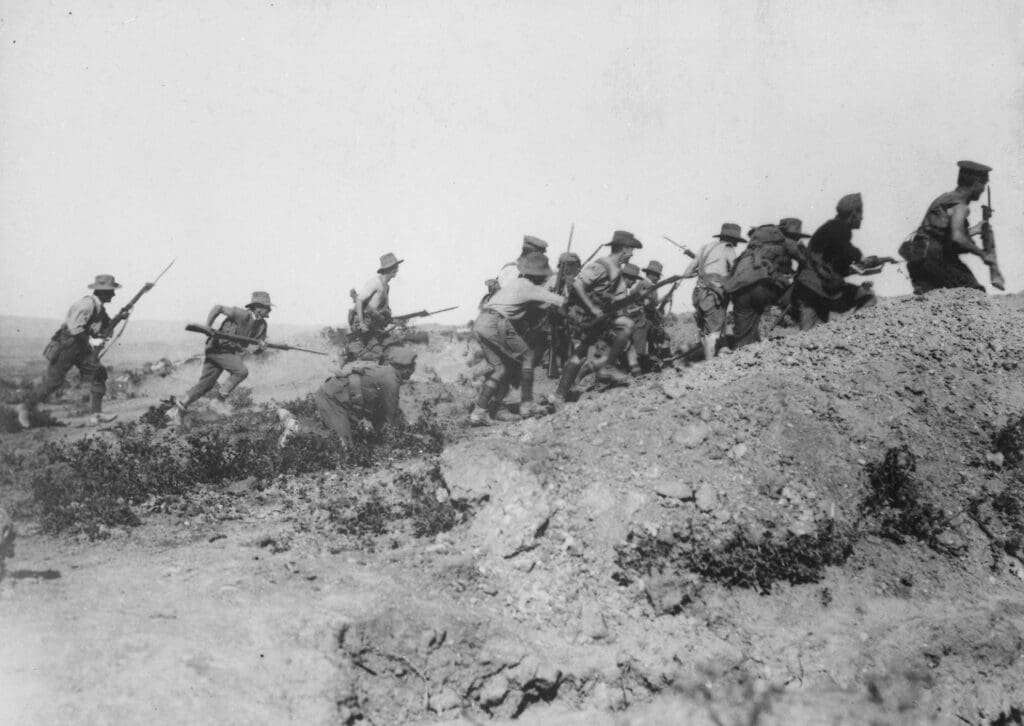
Marxism–Leninism is still reinforcing historical Chinese exceptionalism, Beijing still aims to be the world’s dominant power by mid-century, and the People’s Liberation Army (PLA) is still daily probing Taiwan’s defences, looking for signs of weakness. Even though Beijing’s military planners may have revised their timetables in the light of Ukraine’s halting of the Russian steamroller, they still want to be in a position to destroy US power in the Western Pacific, and to seize their ‘rebel province’ as soon as possible, if they cannot already.
And bad though Putin’s war on Ukraine has been, Xi Jinping’s long threatened war on Taiwan would be worse. Far worse. And not just for its regional neighbours, but for the whole world. Ukraine is a fight for freedom. But because Taiwan is so much more enmeshed in the global economy, producing 75 per cent of the world’s microchips, for starters, it would be a more existential fight. Putin’s Ukraine War is about our values. Any Xi Jinping-instigated war over Taiwan would be much more about our interests too. And not just those of the United States and its allies in the Western Pacific but those of the 100 plus countries with China as their biggest trading partner. Whatever stance they took on the rights and wrongs of the conflict, and whether or not they imposed sanctions on the aggressor, there would be no shipping, no flights, and virtually no trade, because even the imminent threat of war, let alone any fighting, would stop it dead.
The Ukraine War should have made it obvious that in an interconnected world no one can be blasé about ‘other people’s fights’. Even though the ramifications of Putin’s aggression and Ukraine’s resistance run from energy poverty in Europe to potential famine in Africa, the disruption attendant on any attack across the Taiwan Straits would be several orders of magnitude greater, with the world’s busiest sea lanes emptying and almost every global supply chain breaking because transport has become impossible. This might make war unthinkable, but it certainly does not make it impossible, especially to a regime that does not need to win elections, and that supposes its people are more capable of absorbing pain than the citizens of effete and decadent democracies in decline.
Let us be clear about the choices here. Helping Taiwan risks a wider war, as China blockades air and sea routes of resupply. Not helping Taiwan guarantees the collapse of the US alliance system as America abandons a friend in need, and that spells the end of the post-war liberal order that has produced more freedom, more safety, and more prosperity than humankind has ever known before, as countries rush to rearm, or to make the best accommodation they can with the new totalitarian hegemon. That is why it is so important to learn the right lesson from the current war in order to best avert what could readily become the next one. The worst assumption, though understandable, would be that one massive challenge in Europe rules out another one in Asia. In fact, a risk-taking regime might decide that is precisely the time to strike. And any pause to reflect in Beijing, that Putin’s misjudged war might have created, is only useful if Taiwan and its friends use it just as judiciously—to prepare for the worst as well as simply to hope for the best. For Taiwan, this should mean hardening its infrastructure, shielding its military assets, learning how to ‘swarm’ an invasion fleet, trying to acquire an ‘Iron Dome’ style missile shield, and, to change Beijing’s calculus, trying to acquire the capacity to strike back hard. And to manage this escalating preparedness without driving its own citizens to conclude that freedom is not worth the fight.
For the other Western Pacific democracies, it should mean more rapid acquisition of defensive and offensive missile systems, more developed defensive and offensive cyber capability, plus rapid planning for the economic resilience needed to cope, not just with the cessation of trade, but with the impact on production of the loss of Chinese intermediate goods from every critical supply chain. Some would argue that this interdependency of China and the world makes conflict impossible, but I doubt that is the view from Beijing, where trade and investment are seen as strategy by other means.
There is no doubt that Australian attitudes to Beijing have rapidly hardened since 2014, when President Xi’s declaration to our Parliament that China would be ‘fully democratic by mid-century’, perhaps marked the high tide of the global wishful thinking about China, that some economic freedom would inevitably bring political freedom in its wake. Far more Australians now see China as a threat rather than an opportunity; and from diversifying trade to reducing universities’ dependence on Chinese students, to making more of an effort to reassure people of Chinese background that they belong in Team Australia, to acquiring a nuclear-powered submarine deterrent, and to lifting military spending towards 3 per cent of GDP, there is a broad bi-partisan consensus. Yet, none of this is happening nearly quickly enough.
‘We have to ensure that our passion for peace never becomes peace at any price; which is neither prudent nor moral, but a weak surrender to evil’
For the best part of forty years, the world avoided the twin evils of nuclear war on the one hand, and the dominance of totalitarian communism on the other, essentially because America was prepared to ‘pay any price, bear any burden, meet any hardship, support any friend, (and) oppose any foe to assure the survival and the success of liberty’, in JFK’s words. The old Soviet Union understood that there were some red lines that were simply not worth crossing. The new Cold War will be different from the old one—for one thing, as a first-rate economy, now with the military power to match, China is probably a more formidable competitor than the old Soviet Union ever was. But it will take much the same alliance system, with much the same clear red lines, to gain much the same outcome: an uneasy peace until the inherent contradictions of communism eventually produce some sort of regime change.
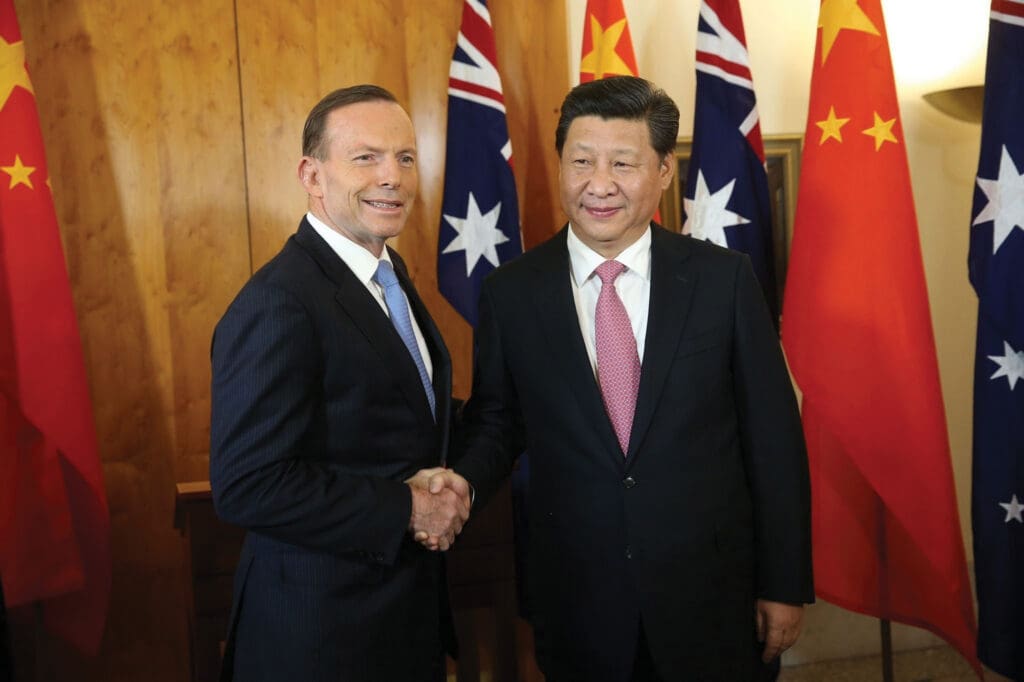
If Ukraine, with 40 million people, needs NATO’s support to resist a nuclear-armed Russia with 140 million, how much more do Taiwan’s 25 million need outside help to maintain their freedom against 1.4 billion Chinese? Because what hope can there be in a world where the strong do what they will and the weak suffer what they must? As Edmund Burke once observed, ‘when bad men combine, the good must associate else they will fall, one by one, an unpitied sacrifice in a contemptible struggle’. By unambiguously stating on four separate occasions that America would definitely fight for Taiwan, even if officials then walked back what he meant, President Biden might have managed to maintain the policy of strategic ambiguity while muscling up its content. An important factor in persuading Beijing that it could confront a powerful alliance rather than a rebel province has been the late former Japanese PM Shinzo Abe’s statement that ‘a Taiwan emergency is a Japanese emergency and therefore an emergency for the Japan–US alliance’. Another is the emergence of ‘the Quad’, the Quadrilateral Strategic Dialogue, a strong partnership of liberal, pluralist democracies.
But it is one thing to be ready to fight; it is another to be able to win, or at least to be confident that no rational adversary would dare to risk a war. All history teaches what the Ukraine experience confirms: that weakness invites aggression. We have to ensure that our passion for peace never becomes peace at any price; which is neither prudent nor moral, but a weak surrender to evil.
Talk given at the ‘Second Summit on Geopolitics, Security and Defence’, organized by the Danube Institute, Budapest, on 1 December 2022.
Related articles:

